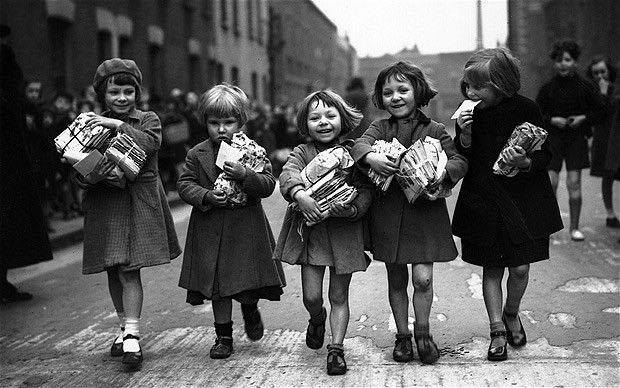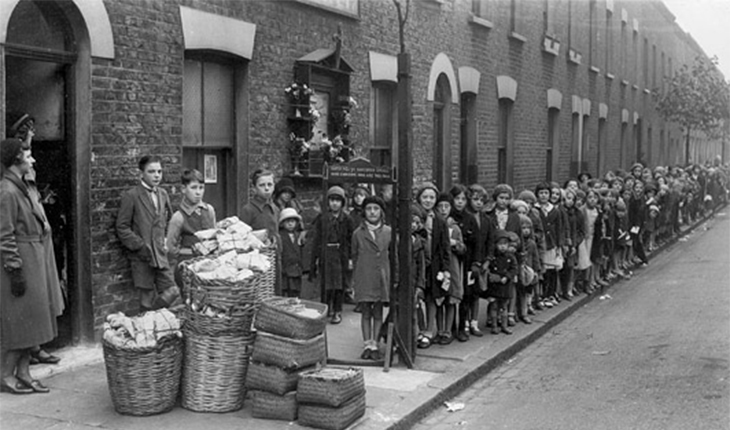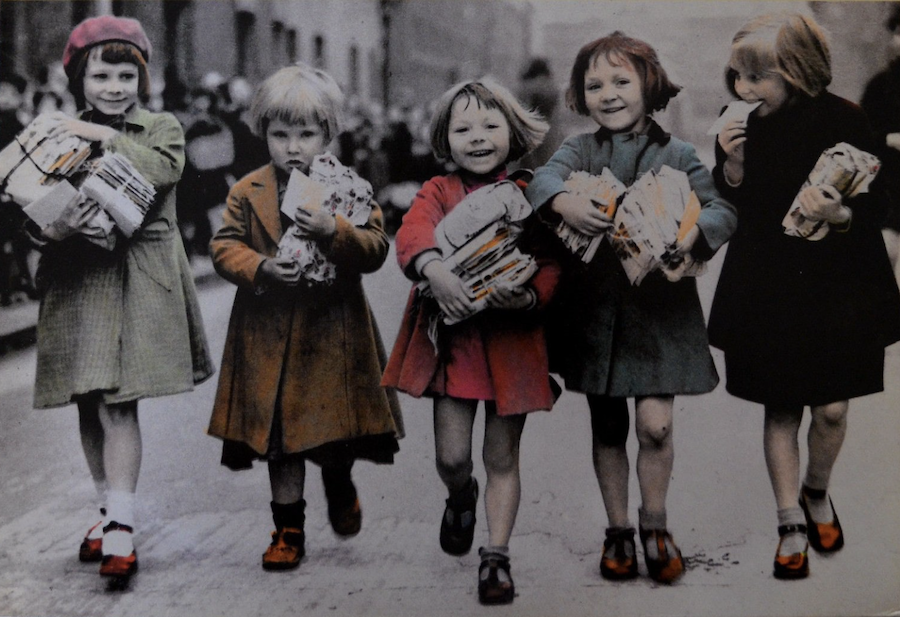Farthing bundles
Shocking poverty in London's East End in the first half of the 20th century
When Clara Grant became Head Teacher at the Devons Road Infant School on Bow Common, in the East End of London in 1900 she was shocked by the level of local poverty and decided to do what little she could to address the deprivation, particularly of the young children who attended the school.
Clara organised hot breakfasts for her young pupils, buying porridge, milk, bread and butter from her own pocket. She supplied her pupils with clothing and boots and realising that children needed to be able to play Grant conceived the idea of the ‘Farthing Bundle’ of toys, a weekly ceremony where children were given a bundle of gifts in exchange for a farthing, the smallest coin in circulation at the time. The scheme was to last for more than fifty years.
 Clara turned everyday objects into toys, these included a piece of firewood wrapped in newspaper which became a doll and old stockings tied with string which become cricket balls and added them to the bundles.
Clara turned everyday objects into toys, these included a piece of firewood wrapped in newspaper which became a doll and old stockings tied with string which become cricket balls and added them to the bundles.
‘Farthing bundles are full of very human things such as children love’ said Clara. ‘Tiny toys of wood, or tin, whole or broken, little balls, doll-less heads or head-less dolls, whistles, shells, beads, reels, marbles, fancy boxes, decorated pill boxes, scraps of patchwork, odds and ends of silk or wool, coloured paper for dressing up, cigarette cards and scraps.’
The weekly ceremony of handing out the farthing bundles became so popular that children would queue from as early as 6am to receive one.
 To control the numbers and ensure the youngest were prioritised, Clara devised a wooden arch 4 feet 4½ inches high through which children had to step to receive the bundles. The arch bore the words Enter Now Ye Children Small; None Can Come Who Are Too Tall. If the child could pass through without bending, they would pay a farthing and receive a bundle.
To control the numbers and ensure the youngest were prioritised, Clara devised a wooden arch 4 feet 4½ inches high through which children had to step to receive the bundles. The arch bore the words Enter Now Ye Children Small; None Can Come Who Are Too Tall. If the child could pass through without bending, they would pay a farthing and receive a bundle.
This nominal payment was a deliberate policy by Clara who believed that paying gave those receiving them, however young, a feeling of self-respect, and even the right to complain if the items were not up to standard.
The farthing bundle ceremony continued right through the Depression of the 1930s, through the Second World War and into the 1960s, years after her death.
Did you benefit from a charity scheme such as the farthing bundles when you were growing up?
Melina - Assistant Editor
Latest posts by Melina - Assistant Editor (see all)
- Top tips for hay fever sufferers - April 14, 2024
- Paysan Breton Cream Cheese Breakfast Wraps - April 12, 2024
- 4 Homemade Sweet Treats for Easter - March 24, 2024
- Playground Memories - March 10, 2024
- The invasion of the duvet: the ’10-second bed’ - February 20, 2024





















